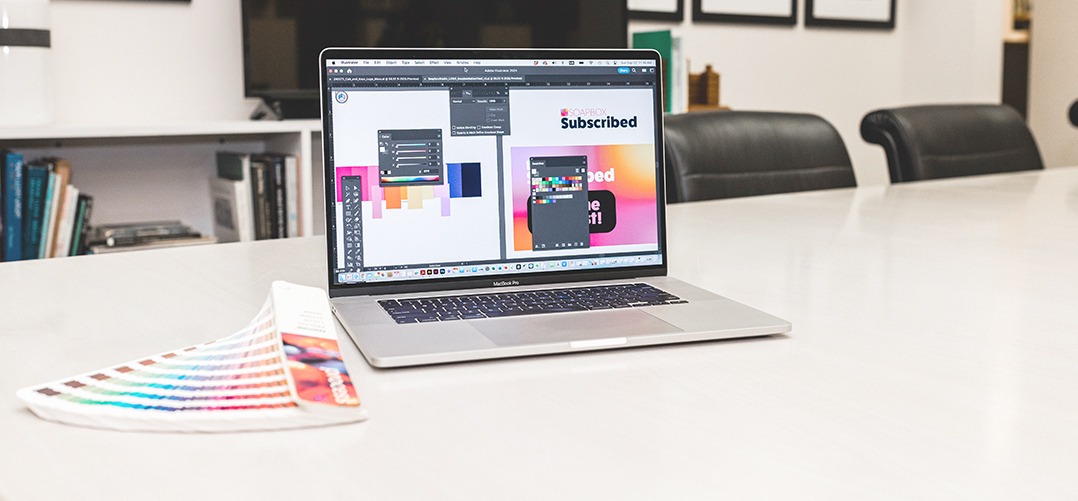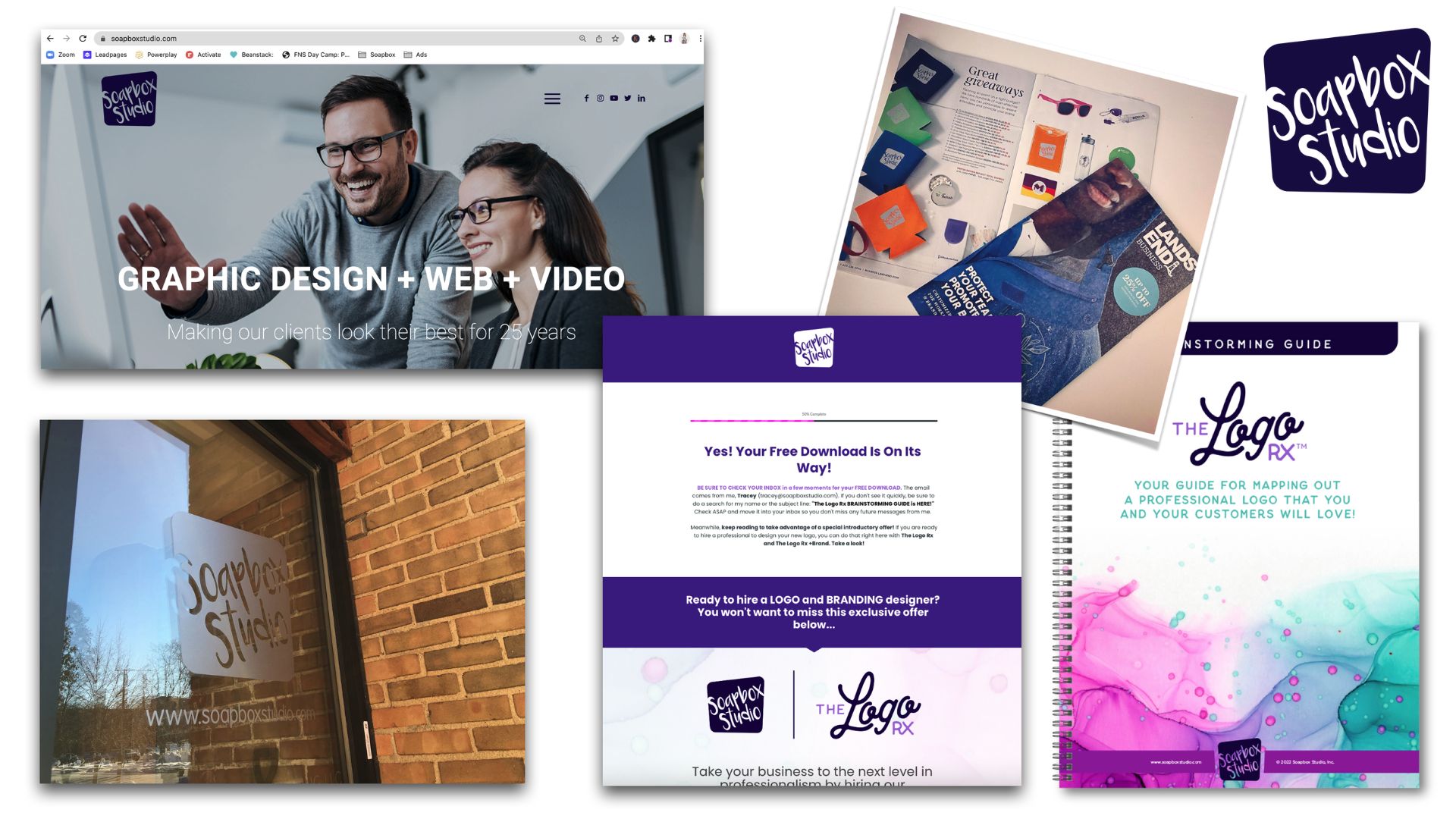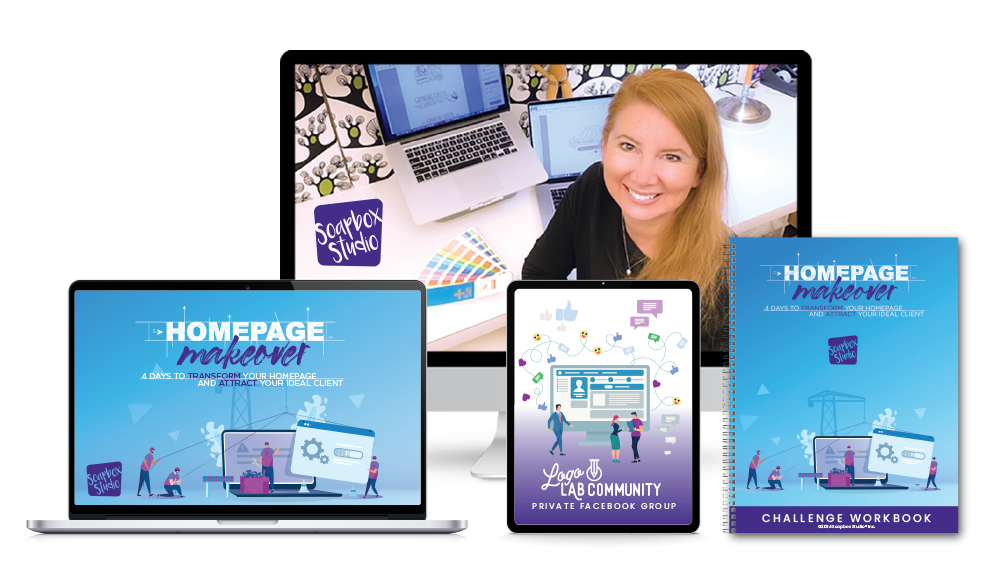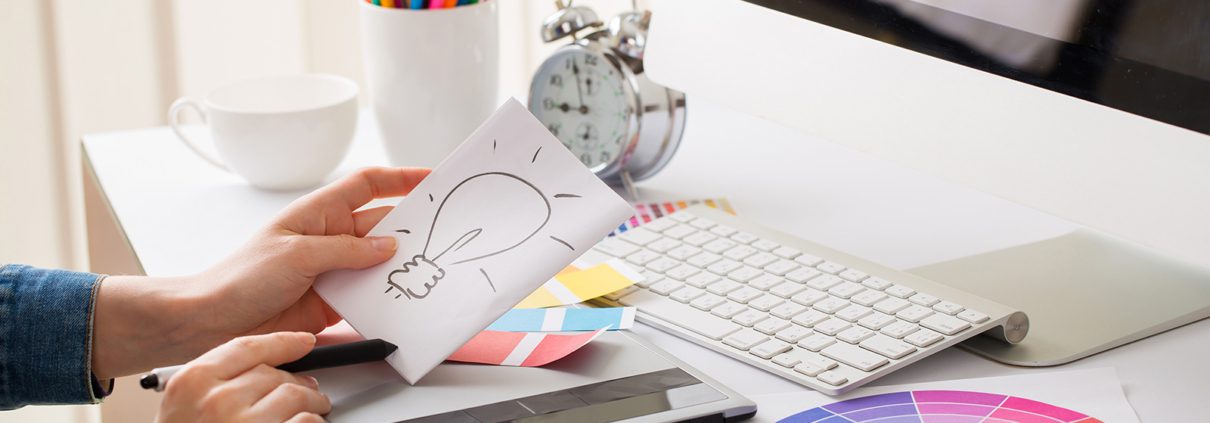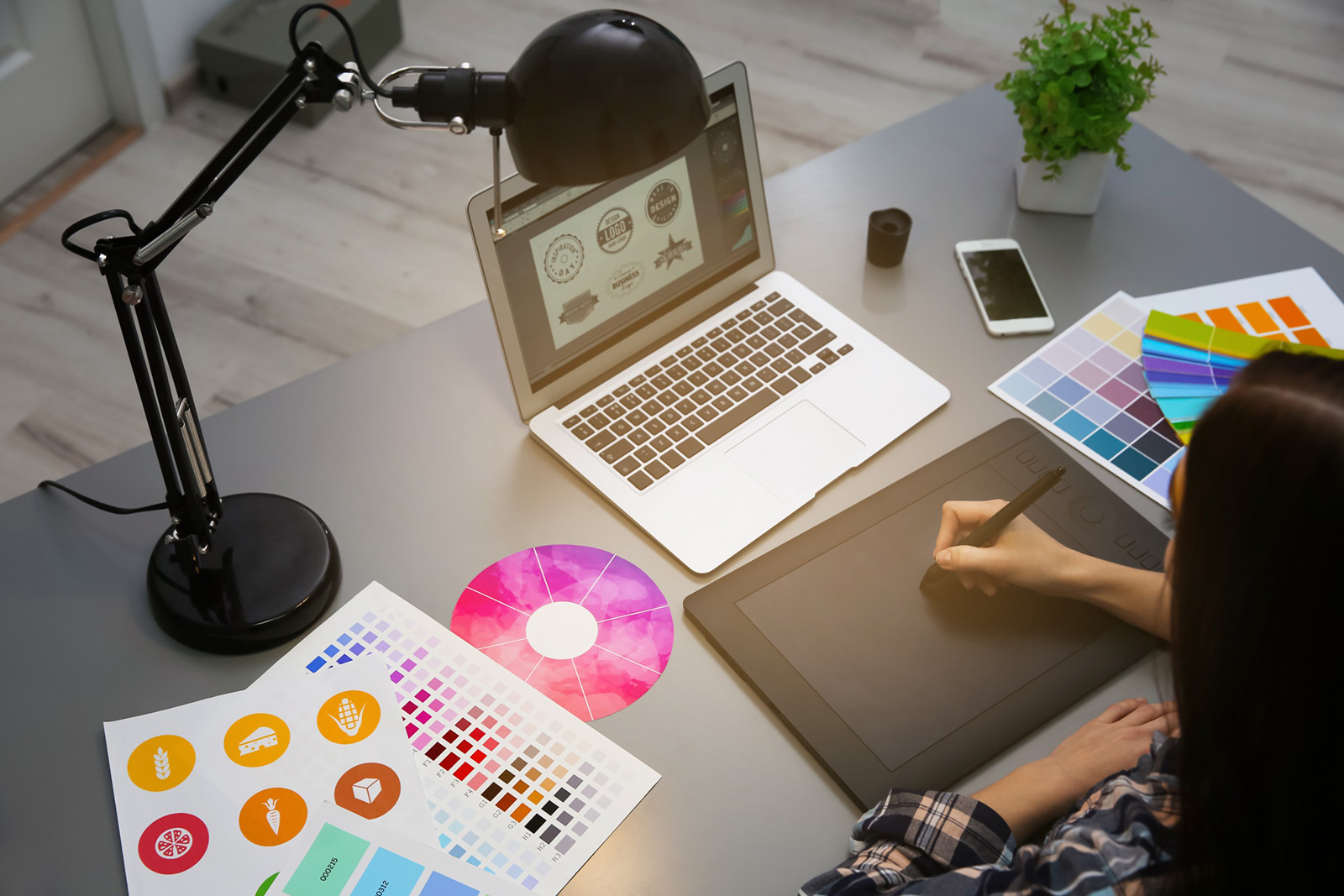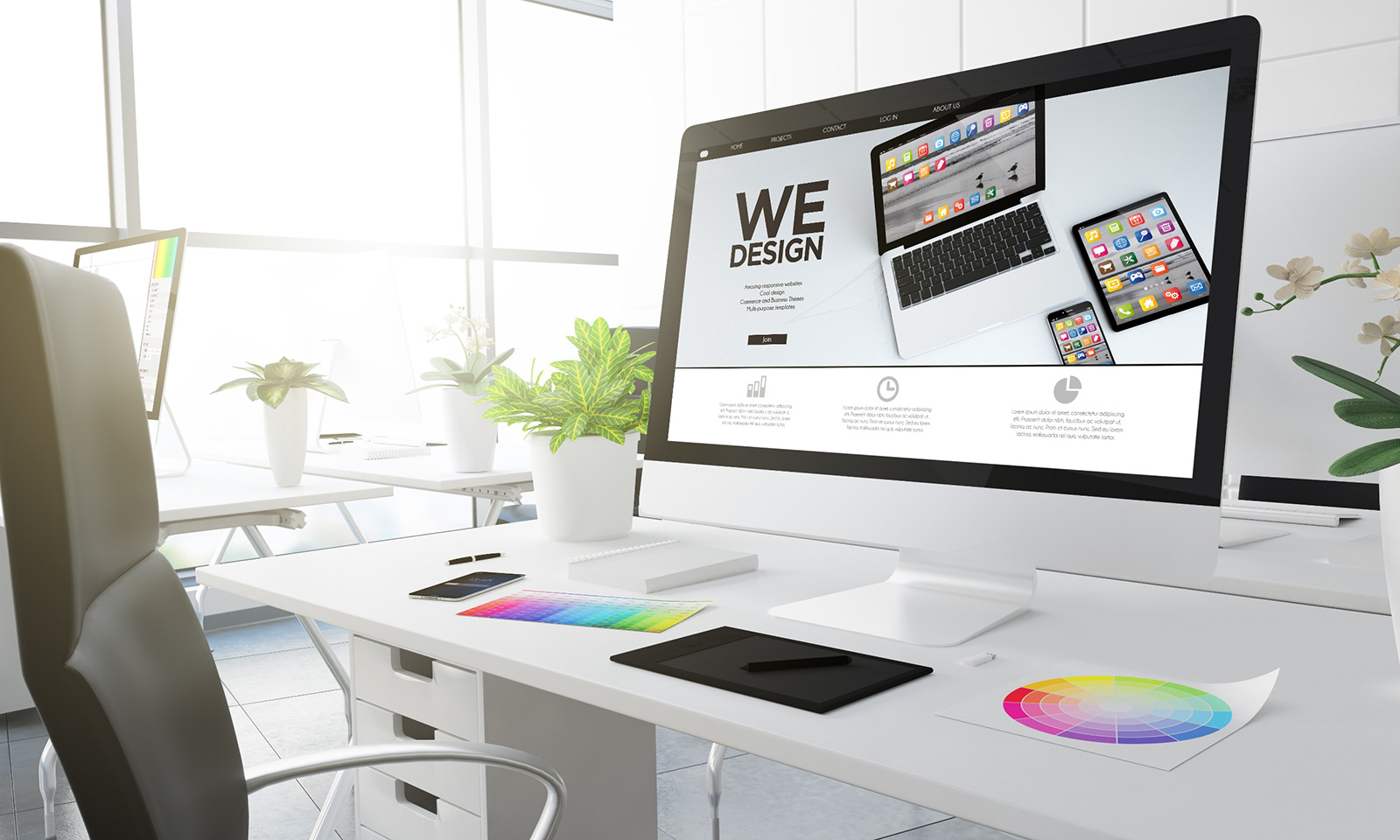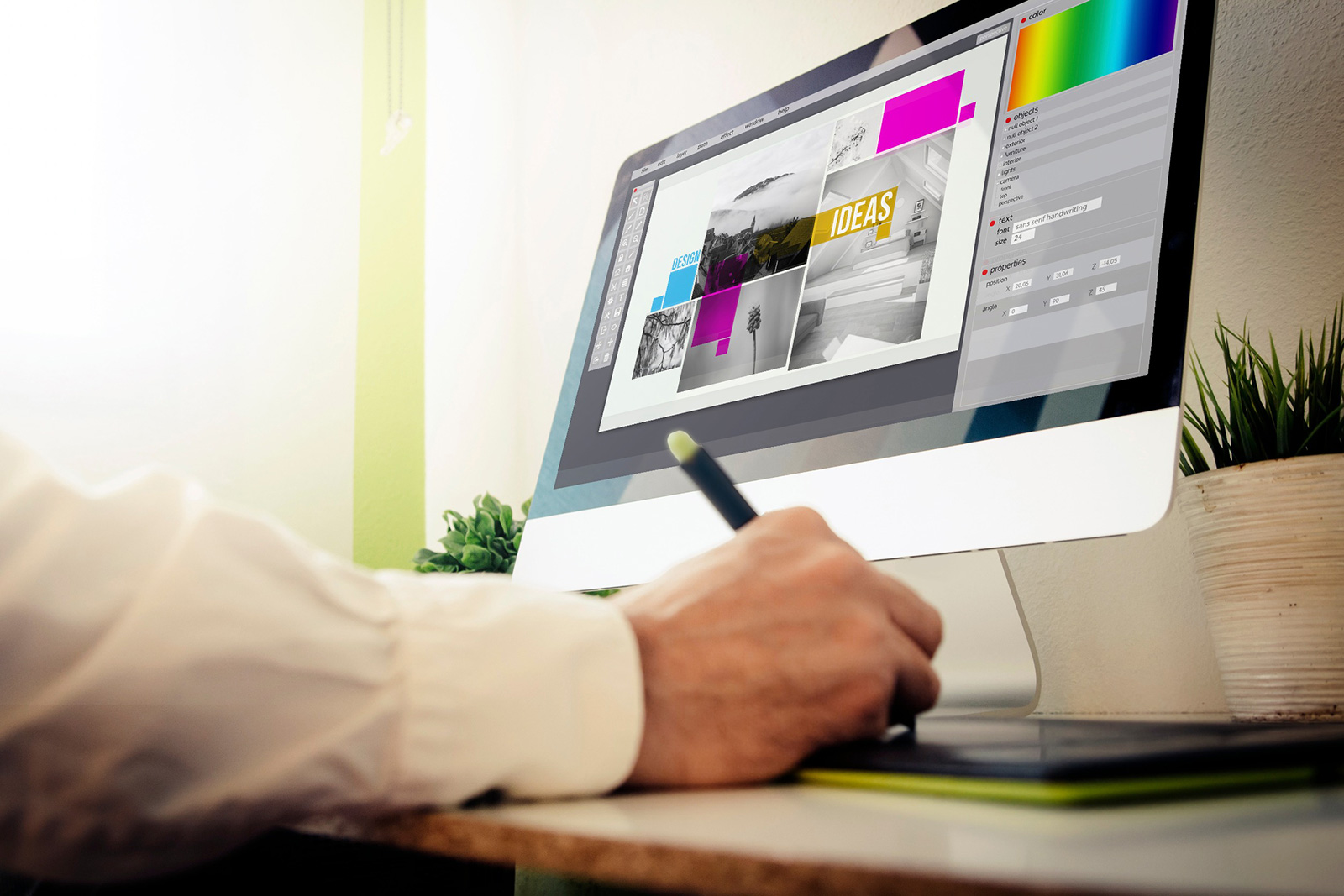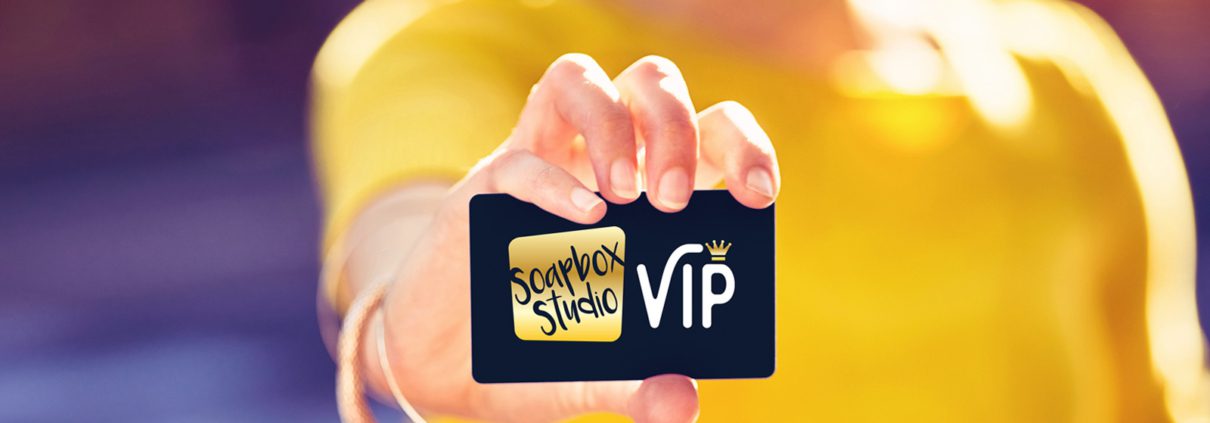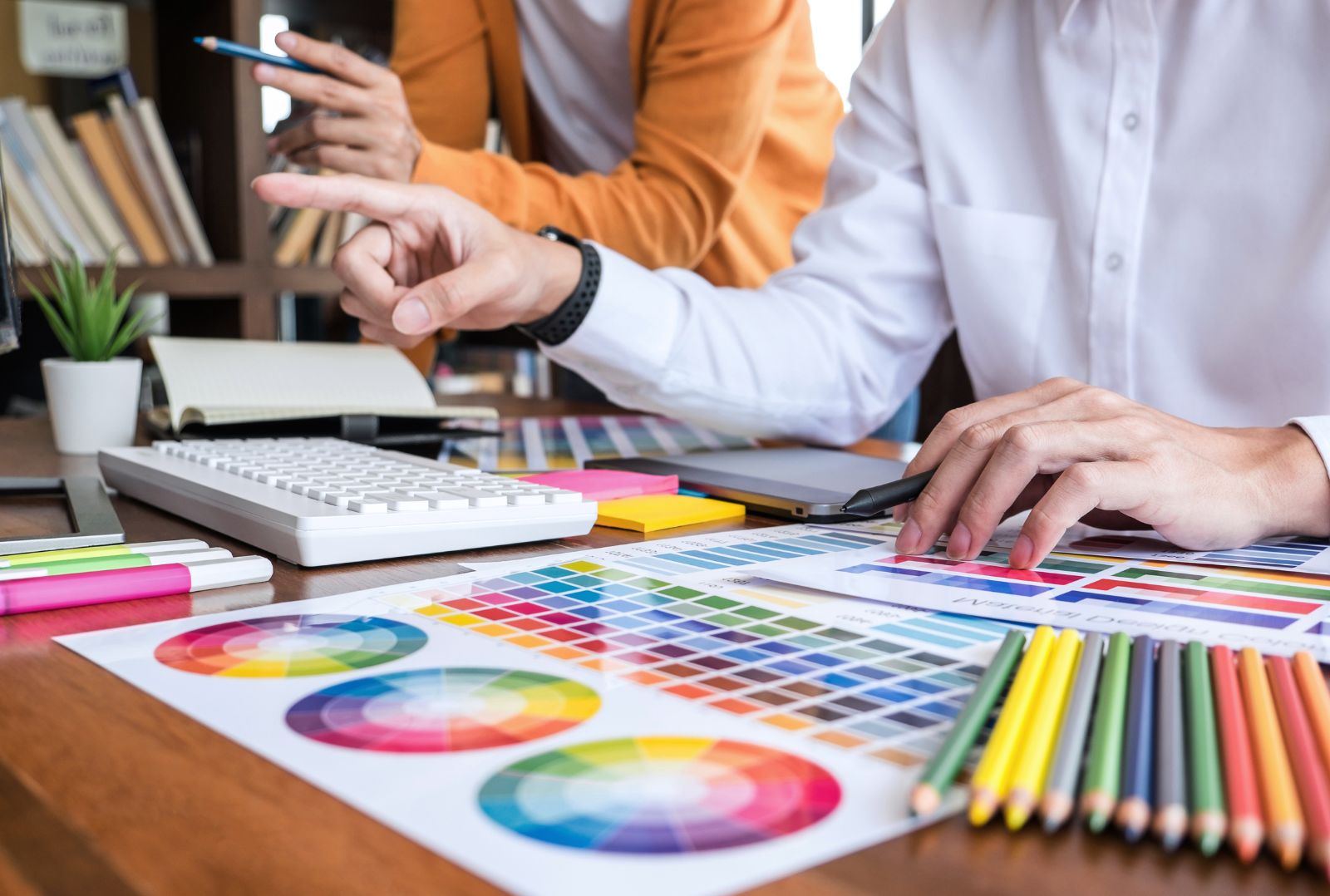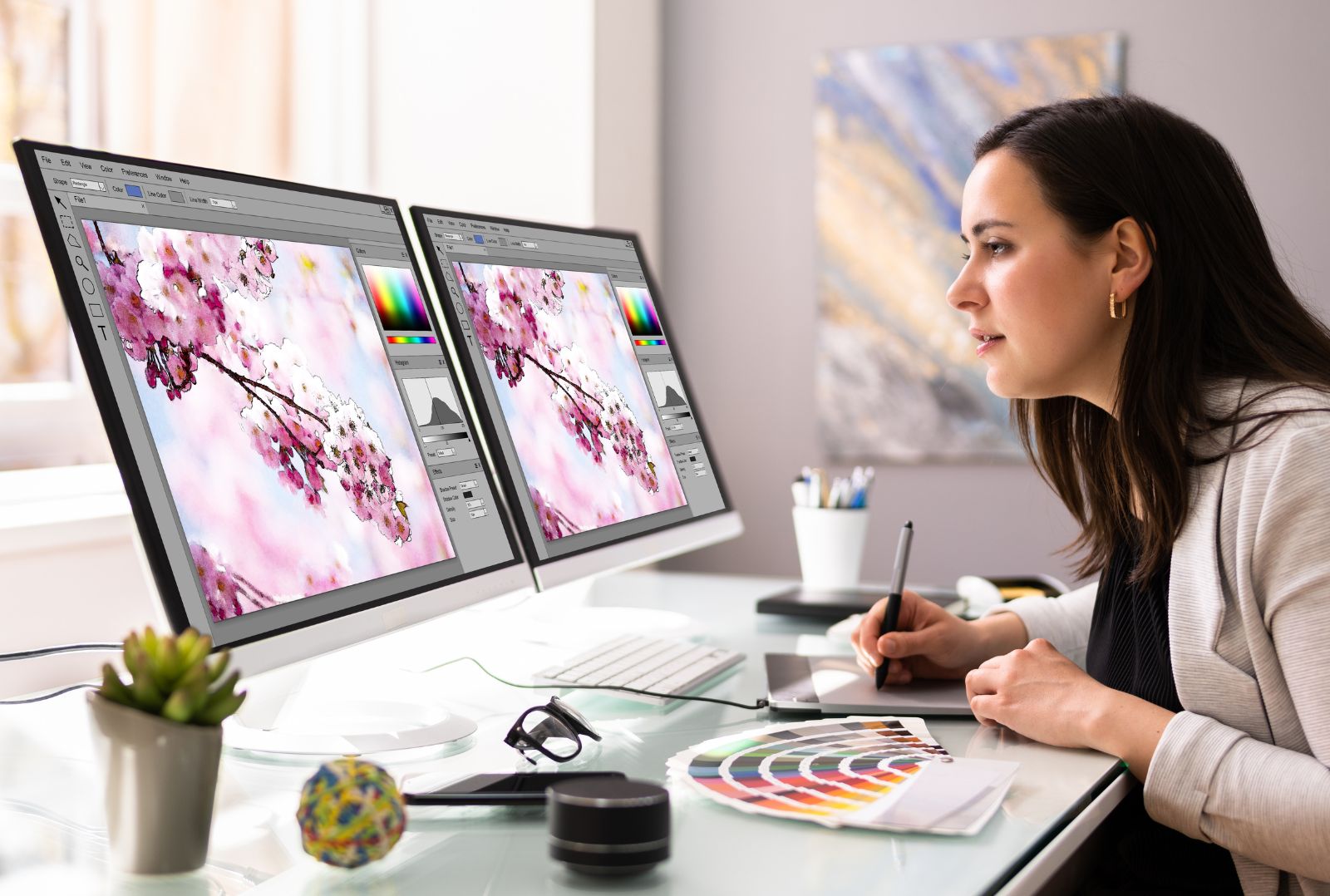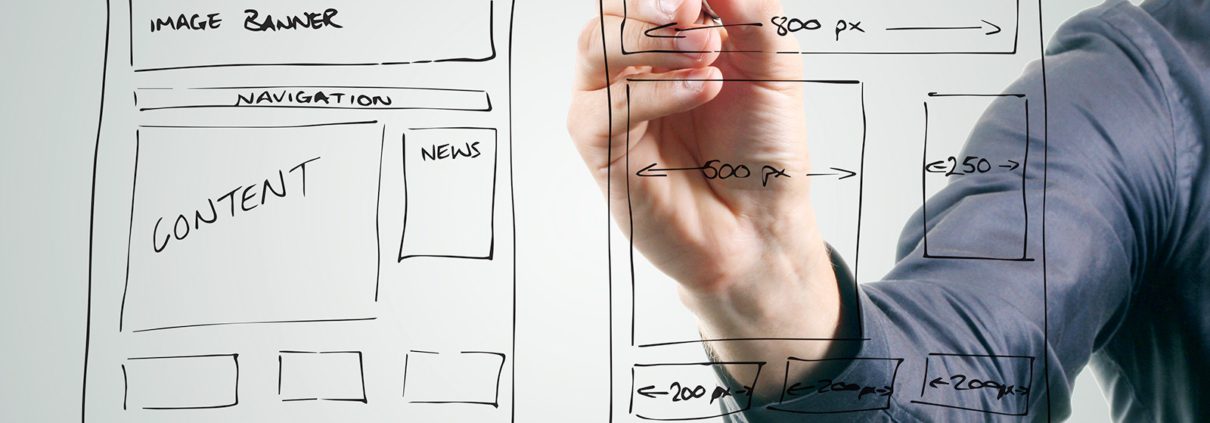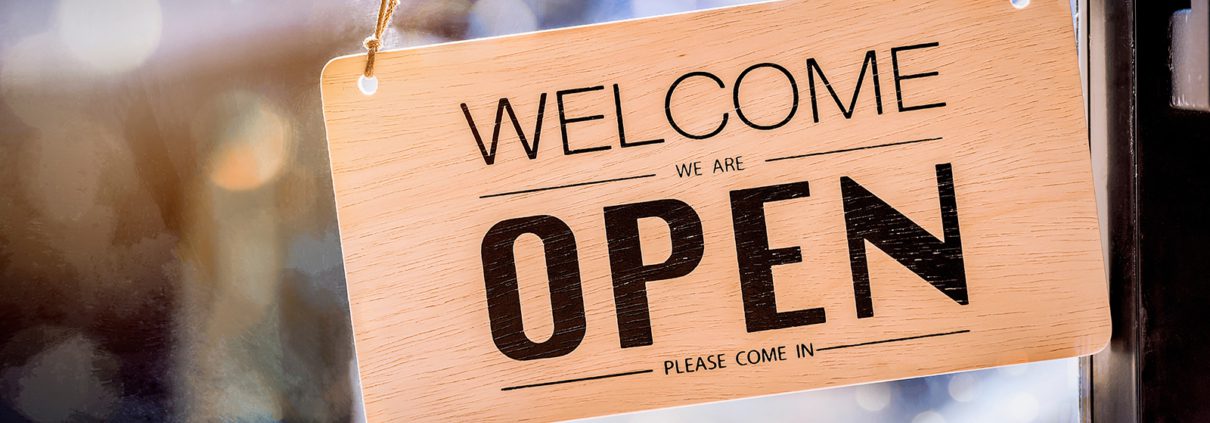If you have ever wondered if good graphic design matters for your business, the answer is yes! Good graphic design plays a very important role in the overall success of your business because it’s true what they say: people “judge a book by its cover,” and potential clients judge a business by the way it visually looks online or in print.
Not only do potential customers judge your business by its looks, but the look of your brand significantly impacts customer engagement and brand reputation.
Your business brand image conveys your overall brand identity and business values and has the potential to attract your ideal client. Professional graphic design for your business is crucial for attracting potential customers and subtly repelling those who do not align with your offerings.
The Secrets of Good Graphic Design For Business
Let’s go over the secrets of good graphic design for your business with these topics:
What Graphic Design Is and Is Not
Graphic Design IS:
It’s easy to get confused about what graphic design IS. At its core, graphic design is indeed an art form—a dynamic blend of creativity, visual communication, attraction, and problem-solving.
It’s the art of visually organizing information and ideas in a way that is not only aesthetically pleasing but also functional and meaningful. Quality graphic design extends beyond mere aesthetics; to attract the right clientele, engaging the services of a professional designer is essential.
Professional designers possess a wealth of knowledge and expertise in visual communication, enabling them to craft designs that effectively convey messages, evoke emotions, and resonate with your target audience.
Their understanding of color theory, typography, layout principles, and industry trends allows them to create visually appealing and cohesive designs. These designs will leave a lasting impression and make it easy for potential customers to understand what your business is all about and what you are selling.
Additionally, professional designers have access to specialized industry tools and software, enabling them to execute their creative vision with precision and efficiency. Adobe Illustrator and Adobe Photoshop are two programs that Soapbox Studio designers use on a daily basis.
Graphic Design Is NOT:
On the flip side, it’s important to understand what makes graphic design so specialized. First of all, graphic design is NOT easy. It takes a lot of practice, training, skill, and attention to detail. All Soapbox Studio designers have their bachelor’s degrees, and the combined experience of our lead designers on staff is over 50 years!
Graphic Design is also NOT just pretty images and fonts; it plays a crucial role in shaping a brand’s image. Design is about strategically leveraging design elements to communicate a brand’s values, personality, and message.
Through the careful selection of colors, font pairing, imagery, and layout, graphic design helps to establish a cohesive and memorable brand identity that resonates with the target audience.
Graphic Design is NOT just about choosing a template in Canva or a similar program and then choosing another template when you are bored with the first one. Good graphic design for your business is strategic and should blend cohesively with your brand guide and company image through thoughtful intention, always with the business’s client in mind.

Understanding the Different Types of Design For Your Business
Branding
To understand the different types of design your business can utilize, it’s important to learn what each type includes. First, there is branding, which includes your logo, brand guide, company color schemes, signature fonts, and samples of the type of imagery.
At the forefront of branding is your logo, the visual symbol that is the cornerstone of your brand identity. Alongside your logo, a well-defined brand guide provides a roadmap for maintaining consistency and cohesion across all brand touchpoints. Then, you will convey your brand’s tone and style from the company’s color schemes and signature fonts. Each component is crucial in reinforcing your brand’s identity and fostering recognition and trust among your audience.
The secret to credibility is using a professional brand guide. If you don’t already have one, have Soapbox Studio create one for you, or take a look at our Logo Rx package if you need a logo designed. You’ll want to use it whenever you hire a graphic designer to create designs for your business.
Pass it along to anyone working on your visuals or promotions. Keeping a cohesive look throughout your business establishes you as a rock-solid company.
Website
Our next type of graphic design for your business is your website. In today’s digital age, your website serves as the digital hub for your brand, making it one of the most important elements of your online presence. It’s not just a collection of web pages; it’s a dynamic platform that showcases your products, services, and brand identity to the world.
A professional website takes time to build and pull together all the foundation pieces that make it a great home for your business. It’s where you will showcase what you offer and who you are to everyone on the internet.
Adding cool pictures and graphics helps make it look even better. But it’s not just about looks; your website is also a powerful tool for growing your business. By making it easy for people to find you on search engines, giving them clear ways to get in touch, making purchases or payments, and using smart marketing tricks, your website can turn visitors into customers. So, investing in a top-notch website is key to making a big impact and getting ahead online.
Marketing
Our next type of graphic design for your business. Marketing encompasses diverse strategies and tactics to promote your products or services and attract customers.
From eye-catching advertisements to visually striking graphics across various channels, such as slide decks, email campaigns, and print materials, graphic design plays a pivotal role in capturing the attention of potential customers and conveying your message effectively through cohesive marketing.
Social Media Graphics
Let’s explore the next type of graphic design your business can implore – social media graphics. In today’s digital age, social media platforms have become indispensable tools for businesses to connect with their audience, build brand awareness, and drive engagement.
Social media graphics encompass various visual content specifically tailored for these platforms, including posts, stories, banners, profile images, and advertisements.
Effective social media graphics are designed to inform and capture the attention of your target audience as they scroll through their feeds. To ensure maximum impact, they should be visually appealing, on-brand, and optimized for each platform’s unique specifications.
Published Content
Our next form of graphic design for business is published content. Newsletters, flyers, books, annual reports, and any other design you publish fall into this category.
Well-designed published content should capture readers’ interest with eye-catching visuals like featured images and infographics. Similarly, effective email newsletter design, with visually appealing layouts and compelling graphics, boosts engagement and drives conversions by optimizing readability across devices.
Digital Products
Your digital products are also a vital type of graphic design for your business. The digital products your business might create are workbooks, guides, checklists, lead magnets, slide decks, and more.
These products encompass a wide range of digital assets and experiences designed to enhance user engagement, streamline processes, and deliver value to customers.
Digital products have become an integral part of modern business strategies, and graphic design plays a crucial role in shaping their effectiveness and appeal. These digital assets serve various purposes, from educating and engaging audiences to generating leads and driving conversions. The better your digital products look, the more you will sell.
Video
Our final type of graphic design for your business is video. Video could be in a category all on its own, but has emerged as a powerful medium for communication, storytelling, and engagement. From short promotional clips to in-depth tutorials, video content offers businesses a dynamic and versatile platform to connect with their audience in a meaningful way.
Video graphic design encompasses a wide range of elements, including title graphics, visual effects, motion graphics, typography, branding elements, and more. These elements come together to create visually compelling and cohesive video content that will capture your customers’ attention and effectively communicate your brand message.

Utilizing Graphic Design For Business Success
Now that you understand the different types of graphic design for your business let’s explore how to utilize them successfully.
The best way to utilize graphic design in your business is to take a three-fold approach. You’ll want to make sure you have effective design strategies in place in these three areas of your business: print, web, and digital.
Effective Use of Print Design
First, let’s consider the realm of print design. Despite the digital age’s dominance, print materials remain a powerful tool for businesses to connect with their audience in tangible and memorable ways.
From business cards and brochures to posters and packaging, print design offers numerous opportunities to showcase your brand identity and convey your message effectively.
By investing in a professional print designer, businesses can leave behind the homemade look and provide a lasting, credible impression on customers and prospects, driving brand recognition and loyalty.
How To Best Use Web Design
Next, we have web design, which plays a central role in shaping your online presence and customer experience. Your website serves as the digital hub for your business, making it essential to prioritize user-friendly design, intuitive navigation, and visually engaging content.
From responsive layouts and compelling imagery to seamless functionality and intuitive navigation, effective web design is essential for capturing your visitor’s attention, driving engagement, and encouraging conversions.
A top-notch website serves as a tool for potential customers to learn everything they need to know about your business and inspires them to go down a path that will end in reaching out and further engaging your business.
The Best Use of Digital Design
Finally, digital design encompasses a wide range of assets and experiences that businesses leverage to connect with their audience in the digital realm. This includes social media graphics, slide templates and presentations, digital ads, and multimedia content such as videos and animations.
By adopting a strategic approach to utilizing digital design, businesses can create visually compelling and impactful digital experiences that resonate with their audience, drive engagement, and, ultimately, achieve their business objectives.
Professional design should be used purposefully across all three of these strategies, and when it is, magic happens! Your brand will automatically be elevated into a business you can be confident and proud of, which naturally boosts your sales.
How Graphic Design Can Increase Your Business Credibility
We talked a little bit about how professional graphic design can increase your business credibility, but let’s dive a bit deeper. The key to effective graphic design lies in creating visuals that not only appeal to your personal preferences but also resonate with your client.
It’s crucial to create designs that catch the eye and appeal to what people naturally like. Instead of going with personal preferences, consider what your audience enjoys. Professional design is vital because even if your clients can’t explain why they like it, they’ll notice and avoid anything that looks amateurish.
Through cohesive visual elements such as logos, color schemes, typography, and imagery, graphic design helps establish a consistent and recognizable brand image across all touchpoints.
Consistency in branding instills confidence and trust in your audience, signaling professionalism, reliability, and attention to detail.
As customers encounter your brand consistently across various platforms and communications, they develop a sense of familiarity and reliability, which in turn strengthens your business’s credibility. This credibility drives conversions and customer engagement and fosters deep customer loyalty.
Fostering deep customer loyalty is another significant benefit of credibility established through graphic design. When customers trust your brand and have positive experiences with your products or services, they are more likely to become loyal advocates who continue to support and promote your business over time.

Secrets of Effective Graphic Design
Not only is it crucially important to build customer loyalty and business credibility through strategic design uses, but it’s also helpful to learn the secrets to effective graphic design.
Secret #1: Keep It Simple
Secret #1 is to remember when in doubt, to keep your designs simple. Don’t use more than a few fonts in a design; if it’s a publication, 3 is plenty. The headline can be a display font, body copy font, and subhead font. In a logo, if you are not a professional, don’t use more than 2 fonts. Simple is key.
Too many fonts or graphics look confusing or even messy and unprofessional. When your customers are confused, they will not buy what you are offering, so make sure the designs you choose to represent your brand are simple and clear.
Secret #2: Limit Font Types
When you are working with fonts, make sure you limit the number of typefaces in each design piece. Also, remember that script fonts are hard to read, so it’s best to use them sparingly across your marketing. Don’t use scripts or handwritten fonts in all caps or increase the letter spacing on them. It’s a telltale sign of an amateur designer.
Secret #3: Utilize White Space
White space in a design is not a bad thing; in fact, it’s a good use of design. Every design needs a place for the eye to rest, and often, the best place for that is white space. By strategically using white space, give your customer a chance to pause and truly ingest what you are offering. Keep a good flow of content without overwhelming the viewer.
Secret #4: Use Consistent Branding
There is nothing more confusing to your customers than inconsistent branding. Your customer may become confused if your print design materials and your online presence don’t cohesively match.
And remember, confused customers do not buy what you are offering. It’s important to ensure that all design elements used in your branding and marketing are consistent and cohesive and utilize the same imagery, fonts, color scheme, and overall look and feel.
Secret #5: Use Professional or Quality Photos
If your business uses many stock images in its marketing, you may consider investing in a stock imagery service like Adobe Stock. Digital asset services will provide you with high-quality, legal-use images that you can use in various areas of your marketing.
If you have photos of yourself or your staff, invest in a photographer or someone skilled at photography who can do a professional photo shoot for you, even if it’s simply headshots for your website and social platforms.
One thing that can ruin your business’s credibility in one glance is poor-quality images of your business, staff, or the owner. No one wants to see the arm of a loved one attached, but attempted to be cropped out. Go the extra step to present your business as the professional that you are.
To learn our other great graphic design tips, read this post: Graphic Design Tips for Entrepreneurs.

How Do You Know It’s Time To Hire A Professional Designer?
You may be wondering if it’s time to go ahead and just hire a professional graphic designer to sell your products and offerings to your potential customers effectively. Let’s go over the two crucial facts that will help you determine whether it’s time to get professional help with your designs.
If Your Design Is Suffering
Knowing when to hire a professional designer is crucial for ensuring the success and effectiveness of your design projects. There are several key indicators that can signal it’s time to bring in professional expertise.
It’s time to hire a professional designer if your design efforts are falling short and your designs are not meeting your expectations or the needs of your audience. If a client seems confused about any part of your services, take a look at the design as well as the copy. Does design play a role in the confusion?
While it’s commendable to try to tackle design tasks on your own, there comes a point where you may need more than your skills and resources to achieve the desired results.
You might also want to seriously consider hiring when the stakes are high, such as for important branding initiatives, marketing campaigns, ads or product launches. Investing in professional design services becomes even more critical. Your brand image and reputation are on the line, and cutting corners on design could have significant consequences.
Effective design plays a pivotal role in capturing attention, generating excitement, and driving sales when introducing a new product to the market. Professional designers can help create compelling product packaging, eye-catching promotional materials, and engaging marketing assets that effectively communicate the value proposition of your new product.
First impressions are crucial in business, as they often determine how customers perceive your brand and whether they engage further with your products or services.
Your brand’s visual elements immediately impact potential customers, whether it’s your website, logo, business cards, or marketing materials. By investing in professional design, you can ensure that your brand makes a positive and memorable first impression.
When the Benefits Outweigh the Cost
While hiring a professional designer involves an investment, it’s essential to consider the long-term benefits and return on investment. Professional designers possess design expertise and specialized knowledge and skills in graphic design, enabling them to create visually compelling and effective designs that communicate your message effectively.
They also have unique skills and are trained to think creatively and outside the box, allowing them to come up with unique and innovative design solutions that set your brand apart from the competition.
Professionals can easily create unique designs that are custom and one-of-a-kind, tailored to your brand’s identity, values, and objectives. Unlike generic templates or DIY design tools, professional designers can develop unique and distinctive designs that reflect your brand’s personality and resonate with your target audience.
Graphic design professionals also understand design principles. They have a deep understanding of typography, color theory, layout, and composition. This knowledge allows them to create designs that are visually appealing, easy to navigate, and effectively communicate your message.
Get Your Time Back and More
Attempting to create designs yourself can be time-consuming and frustrating, especially if you lack the necessary skills and expertise. By hiring a professional designer, you can save time and energy that can be better spent on other aspects of your business while ensuring that your design projects are completed efficiently and to a high standard.
Professional design plays a crucial role in shaping your brand’s identity and perception. By investing in professional design services, you can elevate the quality of your branding materials, reinforce your brand’s visual identity, and create a consistent and cohesive brand experience across all touchpoints.
Well-designed branding and marketing materials can leave a lasting impression on your audience, fostering trust, credibility, and loyalty toward your brand. Professional design helps create memorable and engaging experiences for your customers, strengthening their connection with your brand and increasing their likelihood of repeat business and referrals.
And finally, hiring a professional allows you to charge more for your services. High-quality design reflects professionalism, quality, and attention to detail, which can justify higher prices for your products or services. Investing in professional design allows you to position your brand as premium and charge higher prices, ultimately increasing your profitability and competitiveness in the market.
Elevating Business Success Through Good Design
The importance of good graphic design for your business cannot be overstated. As the saying goes, people do judge a book by its cover, and the same holds for businesses. Your brand’s visual identity is the first point of contact with potential customers, shaping their perception of your business and influencing their purchasing decisions.
Not only does effective graphic design enhance the aesthetic appeal of your materials, but it also plays a crucial role in conveying your brand’s identity, values, and message. By investing in professional design services, you can create visually compelling and cohesive branding materials that leave a lasting impression on your audience, foster trust and credibility, and ultimately drive business success.
Whether you’re launching a new product, making a strong first impression, or seeking to elevate your brand’s credibility, knowing when to hire a professional designer is essential. When the benefits of professional design outweigh the cost, and when your design needs surpass your own capabilities, it’s time to prioritize investing in professional design expertise. By partnering with a skilled designer, you can unlock the full potential of your brand and set your business on the path to success in today’s competitive marketplace.
If you are ready to partner with a professional designer, check out our packages at Soapbox Studio or our Contact Us form and find out how we can help you craft credibility through quality graphic design in your business.



